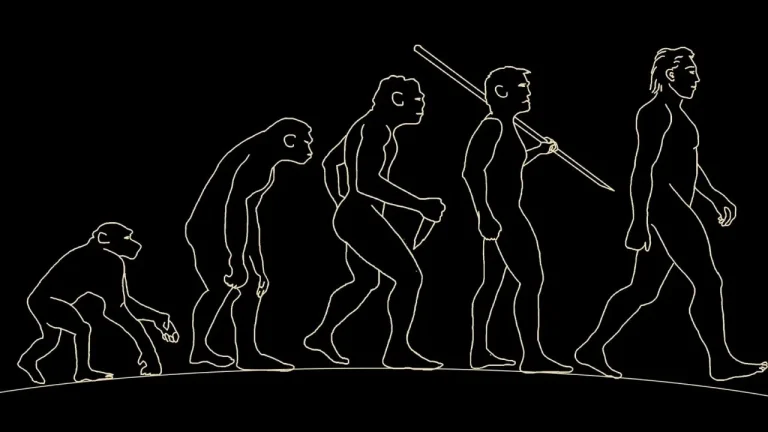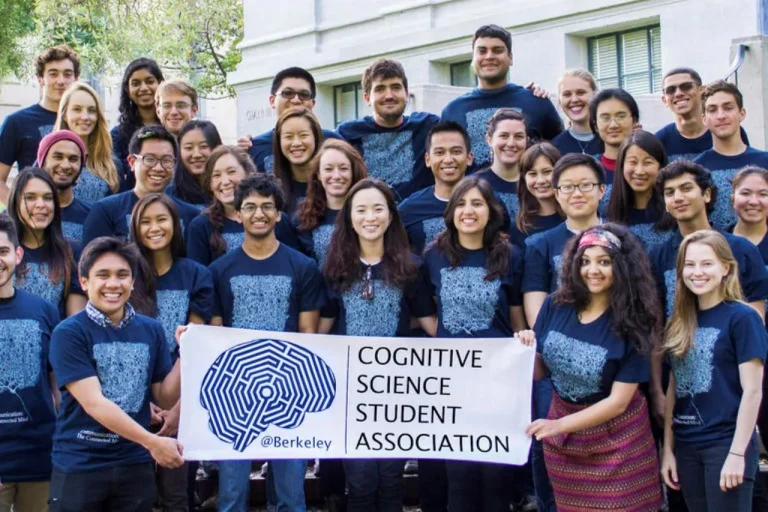Demystifying Columbia’S Data Science Master’S: How To Get Accepted
With demand for data science skills skyrocketing, Columbia University’s prestigious Master of Science in Data Science program is an appealing target for applicants. However, Columbia’s acceptance rate hovers around just 10%.
If you aspire to land a coveted spot, this daunting admissions stat undoubtedly fuels anxiety. Here’s a quick answer if you’re pressed for time: Columbia data science master’s acceptance rests on a holistic review valuing research experience, technical skills, and academic excellence.
Competitive GREs, strong letters of recommendation, and articulate essays explaining your motivations also boost prospects. Now let’s closely dissect qualifying criteria and expert tips to help you ace Columbia’s rigorous data science application.
This comprehensive guide takes an insider’s look at gaining admission into Columbia’s elite data science master’s program. You’ll get the full breakdown of acceptance rate data, prerequisites, ideal applicant profiles, and tips straight from Columbia admissions staff.
With thorough preparation and a persuasive application, read on to maximize your chances of joining one of the world’s top data science programs.
Columbia Data Science Master’s Admissions Statistics
Getting accepted into Columbia’s Data Science Master’s program is no easy feat. With a highly competitive admissions process, it’s important to understand the statistics and requirements to improve your chances of acceptance.
Columbia’s data science acceptance rate is roughly 10-15% each admissions cycle.
Competition for a spot in Columbia’s Data Science Master’s program is fierce. The acceptance rate hovers around 10-15% each admissions cycle, making it a highly selective program. This means that out of every 100 applicants, only around 10-15 are accepted.
It’s crucial to showcase your skills, experience, and passion for data science in your application to stand out from the crowd.
The program receives around 400+ applications annually for about 50 slots.
Each year, Columbia’s Data Science Master’s program receives a large number of applications. On average, the program receives around 400+ applications for about 50 available slots. This means that the competition is fierce, and only the most qualified and exceptional candidates are selected.
It’s important to highlight your unique qualifications and achievements in your application to increase your chances of acceptance.
Minimum admissions requirements: Bachelor’s degree, 3.0 GPA; no specific major mandated.
To be considered for admission into Columbia’s Data Science Master’s program, there are minimum requirements that applicants must meet. These include having a Bachelor’s degree from an accredited institution and maintaining a minimum GPA of 3.0.
Unlike some other programs, Columbia does not mandate a specific major for applicants. This means that individuals from various educational backgrounds can apply, as long as they meet the minimum requirements and can demonstrate their aptitude for data science.
For more information on the admissions process, requirements, and tips for a successful application, you can visit Columbia’s Data Science Master’s program website.
What Makes a Columbia Data Science Candidate Successful
Strong grades in calculus, linear algebra, statistics, algorithms, and programming.
One of the key factors that contribute to a successful Columbia Data Science candidate is a strong academic background in key subjects. This includes excellent grades in calculus, linear algebra, statistics, algorithms, and programming.
These foundational courses provide the necessary knowledge and skills that are essential for understanding and applying data science principles. A solid understanding of these subjects demonstrates to the admissions committee that the candidate has a strong quantitative background and is well-prepared for the rigorous coursework at Columbia.
Hands-on experience with data analysis tools like Python, R, SQL, Hadoop, Spark.
In addition to a strong academic foundation, hands-on experience with key data analysis tools is highly valued by the admissions committee. Proficiency in programming languages like Python, R, and SQL, as well as experience with big data frameworks like Hadoop and Spark, showcase the candidate’s ability to work with real-world data and extract valuable insights.
Demonstrating proficiency in these tools not only highlights the candidate’s technical skills but also their ability to apply them to solve complex data problems.
Proven research skills and data science projects.
Another factor that sets successful Columbia Data Science candidates apart is their proven research skills and experience with data science projects. This could include conducting independent research, collaborating on research projects, or working on data science projects in industry.
Having hands-on experience in data science projects demonstrates the candidate’s ability to apply their knowledge to real-world scenarios and showcases their problem-solving skills. Additionally, a track record of research and projects indicates a strong commitment to the field of data science and a genuine interest in advancing the field.
Importance of GRE Scores for Columbia Admission
When applying for Columbia’s Data Science Master’s program, one of the key factors that admissions committees take into consideration is the applicant’s GRE scores. While the GRE is just one component of the application, it holds significant weight in the decision-making process.
80-85% of accepted students score above 160 in quantitative section.
Columbia University seeks students who demonstrate strong analytical and quantitative skills, and the GRE quantitative section is a good indicator of these abilities. In fact, an impressive 80-85% of accepted students score above 160 in the quantitative section of the GRE.
This high benchmark emphasizes the importance of excelling in this area to increase your chances of being accepted into the program.
Overall GRE scores of 320+ considered competitive.
While the quantitative section is crucial, it’s important to note that Columbia also considers the applicant’s overall GRE score. Generally, an overall score of 320 or higher is considered competitive.
Achieving a strong overall score showcases your proficiency in both the quantitative and verbal sections of the exam, further demonstrating your aptitude for the rigorous coursework in the Data Science program.
Some exceptions made for applicants with high GPAs and domain expertise.
While GRE scores are an essential component of the application, Columbia does make exceptions for applicants who possess exceptional academic achievements or have significant domain expertise. For instance, if you have a high GPA or relevant work experience in the field of data science, the admissions committee may be more flexible with your GRE scores.
However, it’s important to remember that these exceptions are rare and typically reserved for outstanding candidates.
It’s worth mentioning that these statistics and exceptions are based on historical data and trends. Admissions criteria may vary from year to year, and other factors such as personal statements, recommendation letters, and work experience are also considered during the application review process.
Therefore, while GRE scores are significant, they are not the sole determinant of acceptance into Columbia’s Data Science Master’s program.
For more detailed and up-to-date information on Columbia’s admission requirements and criteria, you can visit their official website at https://www.cs.columbia.edu/education/ms/datascience/admissions/.
Crafting a Standout Columbia Data Science Application
Applying to Columbia’s Data Science Master’s program can be a competitive and rigorous process. To increase your chances of getting accepted, it’s important to craft a standout application that showcases your unique qualifications and passion for the field.
Here are some key strategies to help you create an impressive application:
Succinctly explain your motivations and interests in essays.
One of the most crucial components of your Columbia Data Science application is the essay section. Take this opportunity to clearly and concisely explain your motivations for pursuing a Master’s in Data Science and your specific interests within the field.
Show your enthusiasm and passion for data science by sharing personal anecdotes, experiences, or real-world applications that have inspired you. This will help the admissions committee understand your drive and commitment to the program.
Secure strong recommendation letters from professors or employers.
Another important aspect of your application is securing strong recommendation letters. These letters should come from individuals who can speak to your academic abilities, work ethic, and potential for success in the program.
Consider reaching out to professors or employers who have witnessed your dedication to data science, and ask them to highlight specific examples of your skills and accomplishments. Strong recommendation letters can greatly enhance your application and provide valuable insights to the admissions committee.
Highlight relevant coursework, research, and data science projects.
When completing the application, be sure to highlight any relevant coursework, research projects, or data science initiatives you have been involved in. This could include mentioning specific classes you have taken that are relevant to data science, describing any research papers or projects you have worked on, or showcasing any data science competitions or hackathons you have participated in.
Providing concrete examples of your experience and skills in the field will demonstrate your readiness for the program and set you apart from other applicants.
Columbia Data Science Program Prerequisites
Before applying to the Columbia Data Science Master’s program, it’s important to understand the prerequisites that will enhance your chances of getting accepted. While a bachelor’s degree in a quantitative discipline is preferred, it is not always required.
The program values a diverse range of backgrounds and experiences, so don’t let the lack of a specific degree hold you back from applying.
Bachelor’s degree in quantitative discipline preferred but not required
While having a bachelor’s degree in a quantitative discipline such as mathematics, statistics, or computer science is preferred, it is not a strict requirement for admission into the program. Columbia values candidates with diverse academic backgrounds and experiences, recognizing that individuals from various fields can bring unique perspectives and skills to the field of data science.
Coursework in multivariate calculus, linear algebra, probability, programming
Prior coursework in key subjects like multivariate calculus, linear algebra, probability, and programming will greatly benefit your application. These foundational courses provide a strong base for understanding the mathematical and statistical concepts fundamental to data science.
If you haven’t taken these courses during your undergraduate studies, consider taking them as part of your post-baccalaureate coursework or through online platforms like Coursera or edX.
Python and R programming skills essential
Proficiency in programming languages such as Python and R is essential for success in the Columbia Data Science program. These languages are widely used in the field of data science for data manipulation, analysis, and visualization.
If you’re not already familiar with Python and R, consider taking online courses or tutorials to enhance your programming skills before applying to the program.
For more information on the prerequisites and requirements for the Columbia Data Science Master’s program, you can visit their official website at https://datascience.columbia.edu/. It’s always a good idea to review the most up-to-date information directly from the source.
Insider Tips for Columbia Data Science Applicants
Are you considering applying to Columbia University’s Data Science Master’s program? Here are some insider tips to help you increase your chances of getting accepted.
Take prerequisite classes for missing background knowledge
If you come from a non-technical background, it’s important to demonstrate your commitment to learning and understanding the foundations of data science. Taking prerequisite classes in areas such as mathematics, statistics, and programming can help you fill any gaps in your knowledge.
These classes will not only strengthen your application but also prepare you for the rigorous coursework at Columbia. Online platforms like Coursera and edX offer a wide range of courses that you can take at your own pace.
Get involved with data science research and community groups
Columbia values applicants who are actively engaged in the data science community. Consider joining data science research projects or collaborating with professors on their ongoing research. This hands-on experience will not only demonstrate your passion for the field but also provide you with valuable insights and connections.
Additionally, participating in data science community groups or attending workshops and conferences can showcase your dedication and curiosity. Check out local meetups or organizations like Data Community DC or Meetup to find events in your area.
Pursue data analytics internships to gain hands-on experience
One of the best ways to make your application stand out is by gaining practical experience in the field. Look for internships or part-time positions in data analytics or related roles. These opportunities will allow you to apply your knowledge to real-world problems and demonstrate your ability to work with data.
Companies like Google, IBM, and Microsoft often offer internships in data science, so keep an eye out for their openings. Additionally, organizations like Kaggle host data science competitions where you can showcase your skills and potentially catch the attention of admissions committees.
Remember, the competition for Columbia’s Data Science Master’s program is fierce. By taking prerequisite classes, getting involved in research and community groups, and pursuing internships, you can increase your chances of standing out among the applicants and securing your spot in this prestigious program.
Conclusion
While highly selective, thoughtful preparation and a compelling application can open Columbia’s data science doors. Focus on demonstrating academic excellence, strong technical skills, and passion for the field above all else.
Spend time refining your essays, resume, GRE scores, and recommendations to convince Columbia you’ll thrive in this rigorous quantitative program. With a data-driven, meticulous approach and unwavering dedication, your data science aspirations can become a reality at one of the world’s premier universities.







